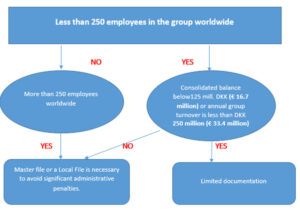Low Doc Loans
Many low doc loan products are aimed at self-employed borrowers. Because these borrowers are often self-employed, obtaining complete documentation for loans can be a time-consuming process. To save clients time and money, lenders often create a low-doc loan that does not require full documentation. For example, a client may benefit from SMSF lending for purchasing commercial property.
Most low-doc loans require 12 months of business statements to prove income and affordability. However, many require more than this – some require a minimum of three different types of financial statements. However, some brokers suggest obtaining all three kinds of documents from clients. It is important to remember that the objective of obtaining the documents is not to meet minimum requirements, but to verify the income of the client.
In addition to financial documents, Low Doc Loans also require an income verification letter from an accountant certifying that the applicant has sufficient income to repay the loan. The letter must be signed by the accountant on their letterhead. It is also important to note that some low doc loans have lower maximum loan to value ratios. Some even allow up to 90%. These are loans that are intended for self-employed borrowers, but they are not for everyone.
If you’ve been thinking about a low doc loan for a few years, remember that you’ll need to reapply for it if you want to refinance your loan. Just because you qualified for one a few years ago doesn’t mean that you can get it again. Moreover, new lending regulations may mean stricter requirements for low doc loans. Make sure to keep your financials up-to-date, and get your financials in order before applying.

Low Doc Loans – Who Are They Aimed At?
Low doc loans are designed for people who don’t have a lot of documentation to support their income. This makes them ideal for young workers, property investors, and self-employed applicants. Since low doc home loans are less risky for lenders, you won’t have to show company financial reports or tax returns. However, if you have good credit, assets, and a substantial down payment, you can qualify for a low doc loan. However, be prepared to pay a higher interest rate as the lender is taking a higher risk.
Low doc loans are designed to make it easier for self-employed borrowers to buy property and pay off existing debts. Self-employed borrowers can get low doc home loans by providing a valid ABN and being GST registered. Some specialist lenders will accept an ABN that’s registered for just one day. You can also borrow up to 80% of the value of your property with a low doc loan if you’re self-employed or have a bad credit history.
Low doc mortgage loans are best for real estate investors who are able to afford a high down payment. These loans are usually based on projected rental income. The rental income must be sufficient to cover the new mortgage payment. They are not ideal for borrowers with bad credit or without a lot of income. Those who have an excellent credit history and a lot of money may qualify for a low doc loan with a no income documentation requirement.